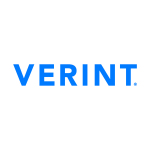The 2024 vCluster Community Survey highlights the need for advanced Kubernetes management approaches to combat rising cost and complexity; vCluster is particularly effective for large distributed organizations
Loft Labs Community Survey Finds Growing Proficiency and Reliance on Kubernetes; Virtualization as the Next Step to Reduce Costs and Management Overhead
Heather Fitzsimmons
Mindshare PR
650-279-4360
heather@mindsharepr.com
Loft Labs, creator of vCluster and DevPod, today announced the results of its 2024 vCluster Community Survey. The survey polled over 125 respondents to gain insights into how teams are managing containerized applications, typical use cases for Kubernetes deployments, and the evolving virtualization landscape. Results show that while proficiency in working with Kubernetes appears to be solidifying, there is an opportunity for Kubernetes users — particularly at large organizations — to reduce cloud spending and streamline operations by adopting novel approaches such as virtual clusters and multi-cloud deployments.
Loft created its flagship product, vCluster, in order to bring the next layer of virtualization to Kubernetes and make the cluster itself lightweight and ephemeral. Virtual clusters operate identically to traditional Kubernetes clusters without heavyweight platform stack components, providing enhanced efficiency and operational control. vCluster empowers teams to run multi-tenant Kubernetes architectures with minimal operational effort, because vclusters share resources from a single underlying cluster.
Since launching, Loft has created a thriving open-source community and gained over 60 paying customers whose engineers have spun up more than 40 million virtual clusters. The user survey conducted in December 2023 reflects Loft’s commitment to deeply understanding user wants and needs, and spreading awareness about the benefits of virtual clusters for organizations of all types and sizes.
“We conducted this vCluster Community Survey to more deeply understand how our users are interacting with Kubernetes; where and why they are deploying clusters; and how we can best support their needs as we continue to add new capabilities,” said Lukas Gentele, Loft Co-Founder and CEO. “Now that we know how users are utilizing clusters and how confident they feel managing them, we see that vCluster can provide tremendous value to lighten the stack and operational load, particularly for large-scale enterprises. At the same time, there is room to grow in terms of educating our user base on the benefits of Kubernetes virtualization and reaching teams who are less experienced with Kubernetes, which we are excited to do.”
Key findings from the 2024 vCluster Community Survey reveal:
- Kubernetes is a foundational technology for the majority of respondents, and is the tool of choice to manage containers in development and production: Only Docker had a one-point lead over Kubernetes in development, but lags far behind for production use cases. To manage Kubernetes, most respondents are split between Azure AKS and AWS EKS with 57% leveraging these services for development use cases and 68% using them in production. Users also mostly work with heavy platform stack components like ingress (82%), monitoring and observability tools (66% and 67%, respectively), and secret managers (62%).
- The most common use cases for deploying Kubernetes are in a microservices architecture (86%), DevOps and CI/CD workflows (83%), and web application hosting (66%): Given the widespread dependency on Kubernetes across the SDLC, teams stand to gain significant benefit from cutting-edge approaches like virtual clusters. vCluster allows teams to collaborate effectively while ensuring isolation between workloads and limiting wasted resources.
- vCluster users tend to be quite experienced and work at large enterprises, reflecting the complexity of Kubernetes itself and the push to virtualize driven by senior team members: 72% of respondents have over 8 years’ work experience, almost 60% with more than 10 years. Most respondents work at organizations with over 1,000 employees, highlighting the value that enterprises in particular derive from virtual clusters due to the amplified scale of their Kubernetes workloads, and the associated costs. Given that Kubernetes is notoriously hard to work with, teams should trust experienced managers and senior developers who are leading efforts to transition to virtual clusters.
- 75% of respondents run Kubernetes clusters in public cloud providers, while almost 50% use private data centers and managed Kubernetes services: Turning to public cloud providers and managed Kubernetes services can help streamline development by shifting the operational burden away from developers and internal platform teams. However, running Kubernetes solely on a public cloud leads to limited flexibility and visibility into costs. Only 19% of users run multi-cloud deployments, which can help companies avoid vendor lock-in, free themselves to find the best pricing models, and identify the products and services that provide the most value for their operations.
- Kubernetes proficiency is solidifying, while proficiency in managing virtual clusters is catching up: 57% of respondents ranked their Kubernetes proficiency highly, either a 4 or 5 on a scale from 1 to 5 — only about 15% of users ranked their expertise between 1-2. Meanwhile, fewer users felt as confident managing virtual clusters, with 30% ranking their skills at a 3, 29% a 4, and 33% at the lowest end of the scale. These results suggest that as more engineers fully understand how to leverage Kubernetes, they in turn see the value in virtual clusters. Virtual cluster proficiency likely lags behind as Kubernetes virtualization is still nascent, and vCluster is an industry-first solution.
By formally collecting feedback from its growing user base, Loft Labs strengthens its commitment to continuous improvement in collaboration with end-users. With over 6,200 Github stars and 40 million virtual clusters created, vCluster’s growth is a testament to the power of virtual clusters to rein in operational complexity and dynamically provision resources for maximum efficiency. As the cloud-native environments underpinning today’s most important technologies continue to expand, virtualization will become ever more critical to unlock secure Kubernetes multi-tenancy and seamless development experiences, all while reducing costs.
Supporting Resources
Learn more about vCluster and the latest from Loft Labs by visiting:
- vCluster website
- Loft Blog
- Loft on X
- Join Loft on Slack
About Loft Labs
Loft Labs is the leading provider of building blocks for platform creators. Loft Labs delivers Kubernetes-native tools, functionality and frameworks purpose-built for platform engineers to manage, activate and optimize their platform stack. Loft Labs empowers platform teams at 100+ enterprises globally to harmonize engineering velocity and operational stability, and to build and run digital platforms at scale. To learn more about Loft Labs, visit www.loft.sh.
View source version on businesswire.com: https://www.businesswire.com/news/home/20240912096405/en/
 Business wire
Business wire 











Add Comment